‘This is a golden cage’ – Israeli special needs adults trapped by the threat of Hezbollah
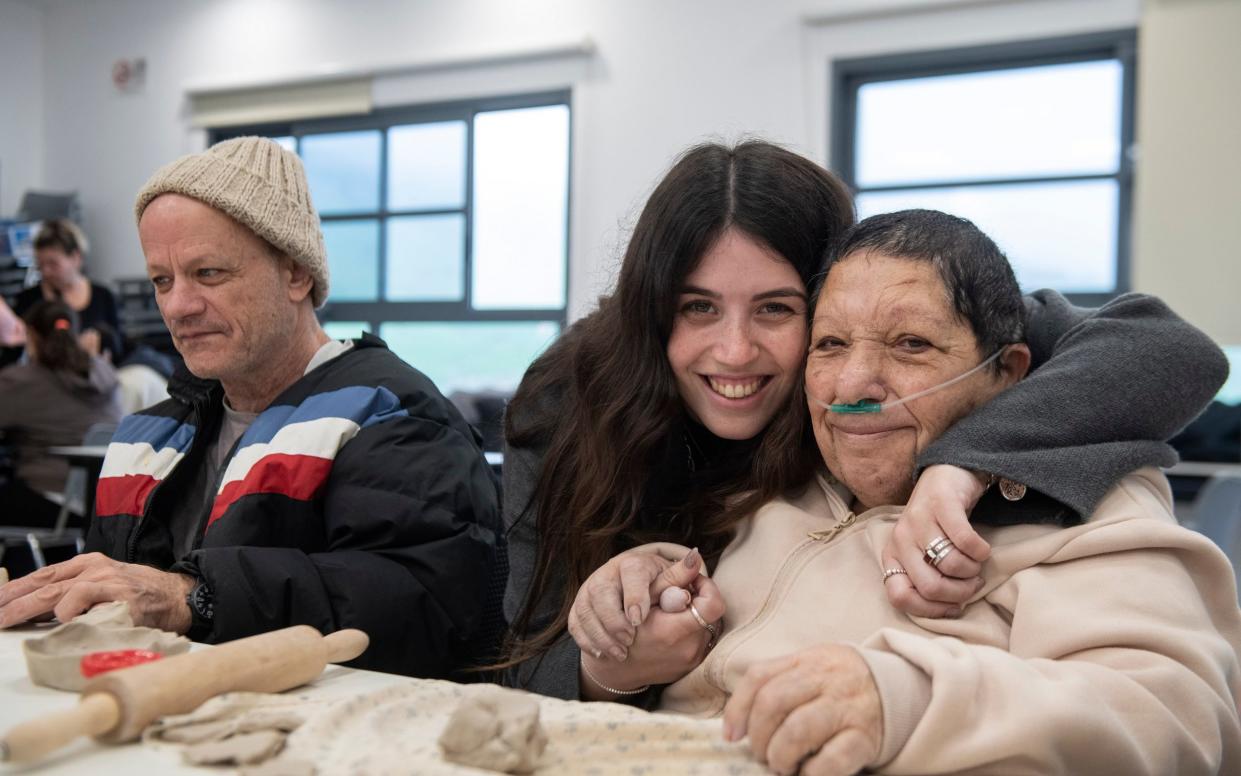
Mohamad, a 23-year-old Palestinian with learning difficulties, plays with a piece of clay, moulding it into the shape of a bowl. “I miss my home,” he says, looking down at his clay creation, unable to look me in the eye. Mohamad is painfully shy.
We are in Poriya in a hostel in a remote corner of Israel that has far-reaching views out over the Sea of Galilee and to the Golan Heights beyond. In peacetime, this place would be filled with holidaymakers. The Galilee, the world’s most famous lake, stretches out below us in all its glory. The view is spectacular.
For the foreseeable future this hostel is providing an emergency shelter for 33 adults with special needs; the youngest just 19, while the eldest is 72. Two days after the Oct 7 attack, the entire community was evacuated from Kiryat Shmona, a town in the northernmost part of Israel and in easy reach of the stockpile of 160,000 missiles amassed by Hezbollah on the other side of the border.
About 200,000 Israelis have been displaced by the war, more than half in the north where the exchange of rocket fire is a daily occurrence. A full-blown war with Iran-backed Hezbollah in southern Lebanon is a possibility. The need for Israel to get its citizens – like the adults with special needs currently languishing in Poriya – back to their homes makes that war likelier than not. Sources have suggested a war could be just weeks away.
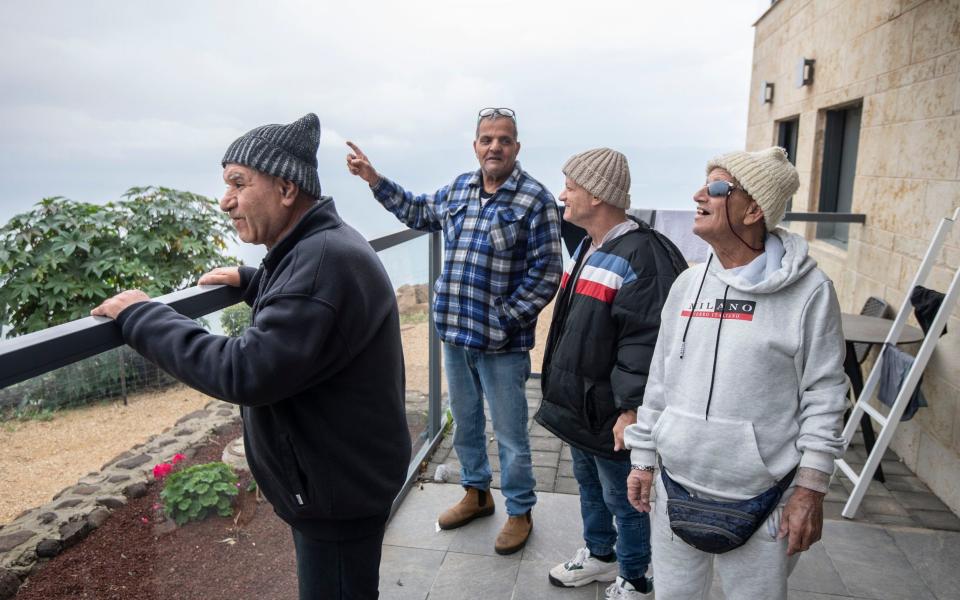
For now they remain in limbo. It’s deeply upsetting. “This is a golden cage,” says Elad Hershkovitz, 42, the manager who has moved, with the adults in his care, 50 miles south to Galilee.
“It’s beautiful here but we are trapped. The view is astonishing but Kiryat Shmona is home. They have connections there in the community. Many of them live independently; they have jobs in the community. They are very frustrated.”
The community had hoped to return home by this Passover but that now seems unlikely. Every day, the Israel Defense Forces (IDF) issues statements detailing rockets fired into northern Israel from Lebanon and retaliatory strikes.
“At first we thought we would be at home in Kiryat Shmona for Pesach (Passover). Now from what we are gathering there is nothing to talk about until August.” In all likelihood the transient lifestyle will last for a year at least.
For now, the adults share accommodation, four to six people to a room. Likewise their carers, who find themselves far from home and living in dormitories too. The centre doesn’t distinguish between the adults it looks after.
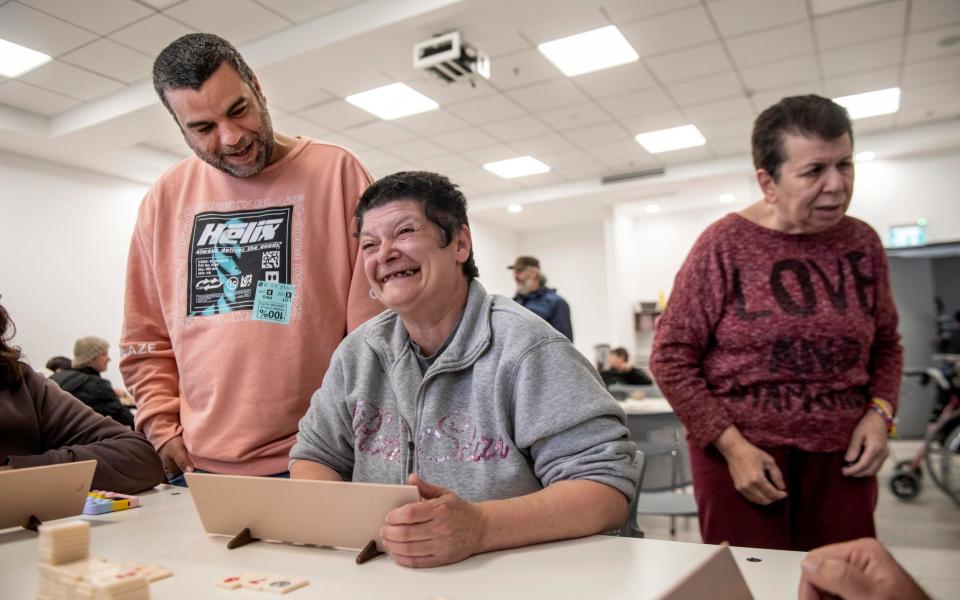
Mohamad is Muslim, his family are from an Arab village in the north of Israel. But every day back in Kiryat Shmona, he gets up early, puts on an Israeli army uniform and goes to the local army base where he volunteers “I love it,” he says, “I really miss my job.”
Lamis, 25, is a Christian Arab whose father was a soldier with the South Lebanon Army, a Christian militia that has fought alongside the Israelis and against Hezbollah. “I like it here but I miss my old home,” she says. A parrot squawks in the corner of the activities room; it was bought two months ago to help calm the youngest member of the community, a teenage girl with behavioural issues.
Yehuda Ben Naim, 70, one of the oldest adults tells me: “I miss my own room. I live in a flat in Kiryat Shmona and I was very independent there. I worked in the paper factory where I got paid.”
There is pressure on Israel’s leadership to tackle Hezbollah head on. Israel’s defence ministry ordered the evacuation of about 40 communities in the north back in October, including about 23,000 Israelis from Kiryat Shmona. The daily skirmishes make it impossible for the communities to return safely.
Meanwhile, the war bill is totting up. The government estimates the conflict – including the cost of the evacuations – is about a billion shekels (£200 million) a day, an eye-watering sum. In nearby Tiberias, hotels that usually do a brisk tourist trade, are instead filled with evacuees.
Mr Hershkovitz, who grew up in Kiryat Shmona, took the executive decision to move the adults in his care just two days after the Oct 7 massacre. He wasn’t hanging around for the government order to get out of there. He has seen too many Hezbollah rocket attacks in the past and immediately feared the worst.
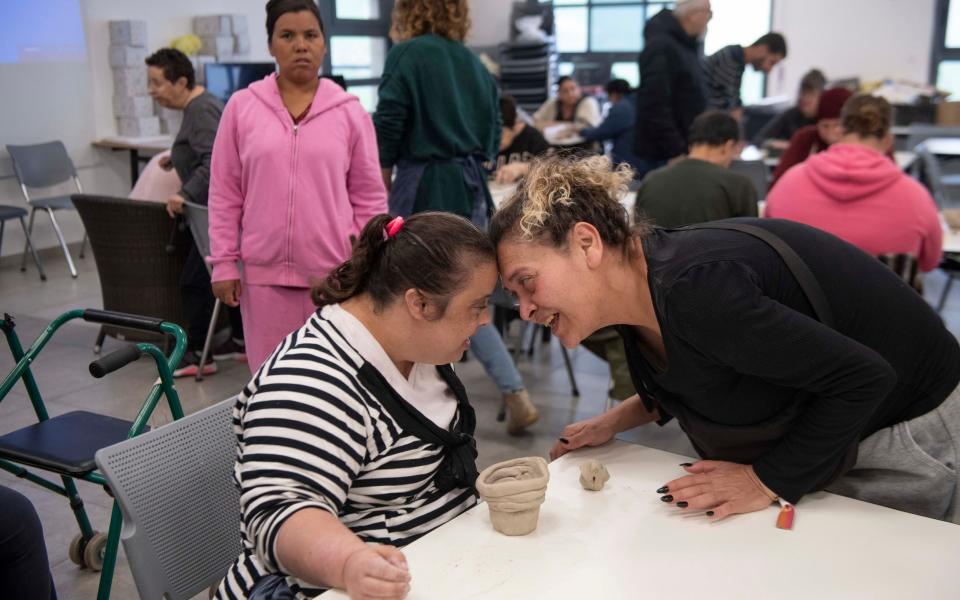
“Kiryat Shmona is historically the place that is always the target for attacks,” he says. He commandeered a bus and two cars and took a decision at 4.30pm on Oct 9 to leave and within three hours, the whole community was on the move south to Galilee: a sort of modern-day exodus.
“We didn’t know for how long we would need to move out,” he says, adding: “The transition wasn’t difficult at all. The real problem we are facing is this is taking a much longer time and we are facing the reality that even though they have special needs they just want to go back home.
“They want the little things too. Like going to the mall.” The hostel they are in now is miles from anywhere. They are trapped.
The centre has tried to protect the adults from the terror of the war on their doorstep but they watch TV and see it on YouTube. The uncertainty is affecting behaviour. That morning, Mr Hershkovitz had dealt with one of his clients suffering a panic attack. “He has got a background of anxiety,” he says.
One of the carers Inbal Zemah, 26, whose grandmother lives in Manchester, says: “They used to have their schedule every day: going to work; sleeping in their own bed. Here they don’t work. They have activities but it’s not the same as normal, regular life.” As we chat, one of the adults, an elderly woman in her 60s, comes up to her and bursts out crying. Ms Zemah puts a protective arm around her.
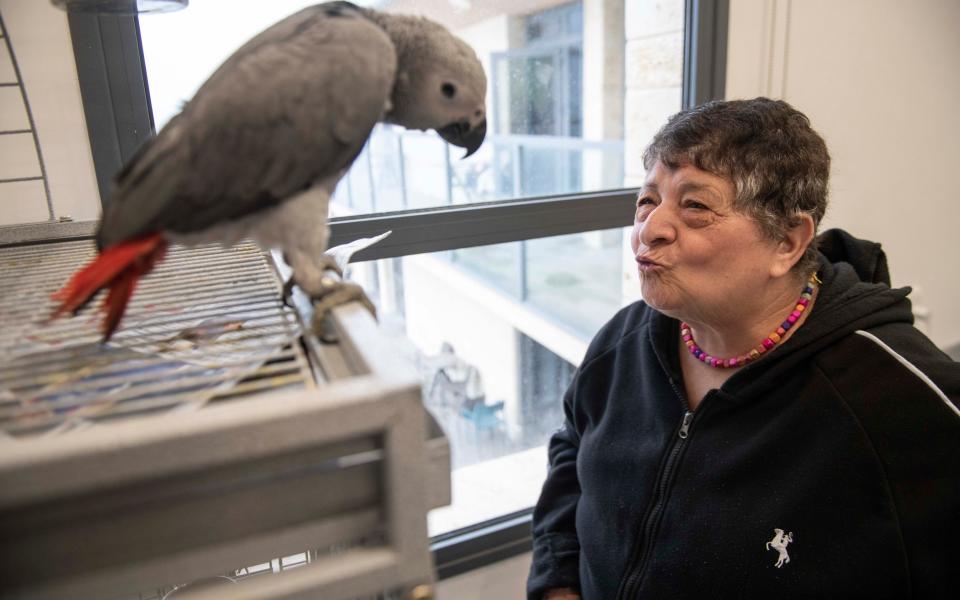
I ask Mr Hershkovitz how long they can remain in limbo; and whether Israel needs to strike. His own children were out of school for months – like in the dark days of Covid – because of the demand to evacuate.
“What we have at the moment between Israel and Lebanon is only arm wrestling,” he says, “I know what Katyusha rockets [Soviet made and supplied to Hezbollah] are and this is nothing. I am the father of three children and they need to grow up peacefully.”
Israel is contemplating a full-blown war with Hezbollah. If it does invade, in an attempt to create a buffer zone far beyond its northern border, politicians know the Israeli death toll will soar.
Hezbollah’s rockets are far more numerous and bigger than anything possessed by Hamas in Gaza. Tel Aviv’s high rise residential blocks would easily come into play.
But on the other hand, it now has 200,000 displaced people whose patience is running out. That just might make the war with Hezbollah all the more likely.

